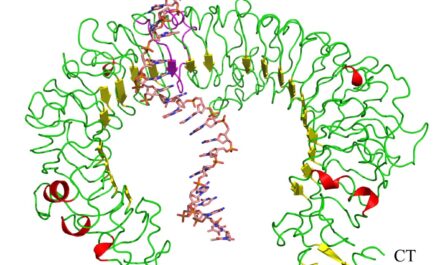Precision medicine, also known as personalized medicine, is an emerging approach for disease treatment and prevention that takes into account individual variability in genes, environment, and lifestyle for each person. This form of medicine allows doctors and researchers to predict more accurately which treatment options would work best for a specific patient’s medical condition. Precision medicine enables doctors to determine prevention or treatment strategies based on a patient’s predicted response or risk of disease. The global rise in various types of chronic and hereditary diseases has prompted stakeholders in the healthcare industry to shift from traditional one-size-fits-all approach to more tailored treatment regimens. With continual advancements in artificial intelligence and analytics, precision medicine is expected to provide healthcare professionals with deeper understanding of disease mechanisms for targeted treatment.
The global Precision Medicine Market is estimated to be valued at US$ 89.6 Billion in 2023 and is expected to exhibit a CAGR Of 8.7% over the forecast period 2023 To 2030, as highlighted in a new report published by Coherent Market Insights.
Market Dynamics:
Growth in Personalized and Targeted Therapies
The approach of precision medicine is centered around customized care for individual patients based on their genetic makeup, lifestyle, and environmental exposures. Personalized therapies leverage genomics data and biomarkers to develop tailored treatments for specific groups of patients. For example, HER2-positive breast cancer is effectively treated with HER2-targeted therapies like trastuzumab that have significantly improved survival rates. Advancements in areas like pharmacogenomics are enabling optimization of drug selection and dosing regimens as per a person’s genetic profile. This driver is expected to fuel demand for precision diagnostic tests and treatment methods over the forecast period.
Segment Analysis
The precision medicine is segmented based on technology, application, end user. Based on technology, the molecular diagnostics sub segment dominates the market. Molecular diagnostics enables personalized treatment by analysing DNA, RNA and proteomic profiling of patients. Advances in next generation sequencing and bioinformatics is driving the growth of molecular diagnostics in precision medicine.
PEST Analysis
Political: Governments across the globe are supporting precision medicine with initiatives and funding to research. For example, in US the Obama administration launched the Precision Medicine Initiative in 2015, allocating $215 million budget for it.
Economic: The cost of genome sequencing and molecular diagnostic tests are declining steadily due to technology advancement and scale up of operations. Falling diagnosis cost is boosting the adoption of precision medicine across various applications.
Social: Increase in chronic diseases and need for improved clinical outcomes is driving patients and healthcare providers to adopt precision treatment plans. Growing acceptance of personalized medicines based on individual genetics is a big opportunity.
Technological: Advancements in fields of genomics, bioinformatics, big data analytics are enabling precision diagnostics and treatment. Developments such as next generation sequencing, lab-on-a-chip, compact diagnostic devices ease point-of-care testing and analysis.
Key Takeaways
The Global Precision Medicine Market Demand is expected to witness high growth.
Regional analysis:
North America accounts for the largest share owing to established healthcare infrastructure and positive government support for precision therapies.
Key players operating in the precision medicine market are Illumina, Thermo Fisher Scientific, Roche, Myriad Genetics, QIAGEN, Almac Group, Intel, IBM, Medtronic, GE Healthcare, Janssen Global Services, Tepnel Pharma Services,Novartis, Bayer, Merck, GSK.
Note:
1. Source: Coherent Market Insights, Public sources, Desk research
2. We have leveraged AI tools to mine information and compile it




